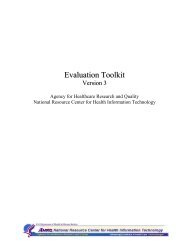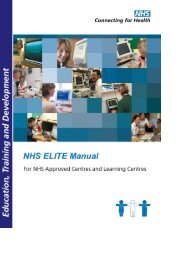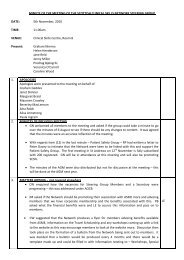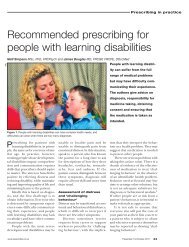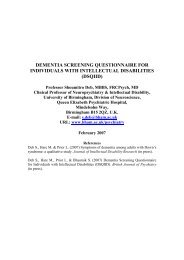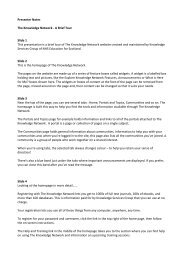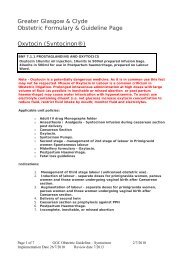The Fife Dementia Strategy: 2010 â 2020 - The Knowledge Network
The Fife Dementia Strategy: 2010 â 2020 - The Knowledge Network
The Fife Dementia Strategy: 2010 â 2020 - The Knowledge Network
Create successful ePaper yourself
Turn your PDF publications into a flip-book with our unique Google optimized e-Paper software.
with service providers and carers in <strong>Fife</strong> a number of reasons for the low rates<br />
of completion were identified:<br />
• <strong>The</strong> Carers Assessment is not offered by the Service Provider. This may<br />
be for a number of reasons such as the service provider does not see or<br />
understand the benefits of the Carers Assessment due to a lack of<br />
education or due to experience whereby services are not available to<br />
meet identified needs, or the provider does not have time.<br />
• Carer declines the assessment. This may be because the assessment<br />
was offered at an inappropriate time or in an inappropriate manner, the<br />
carer does not want to be assessed for fear they will be seen as ‘not<br />
coping’, or the carer does not understand the reason for the assessment.<br />
In order to be an effective tool the Carers Assessments must be provided<br />
using a person centred approach. <strong>The</strong> reason for and benefits of the<br />
assessment must be fully explained and understood, and carers given the<br />
option to participate. <strong>The</strong> Carers Assessment should not be a one-off<br />
opportunity; the offer should stand, and be re-iterated when appropriate to<br />
ensure the carer has full rights and access to services and support.<br />
Each person that cares for someone in the community has unique needs<br />
which should be assessed, met and reviewed using the Carers Assessment.<br />
This is particularly true for carers of people with dementia as the progressive<br />
nature of the condition means that not only with the needs of the individual<br />
with dementia change over time, so will the needs of the carer.<br />
Following the Carers Assessment it is necessary that services are identified to<br />
meet the carer’s needs, and that these are accessible and appropriate as<br />
deemed by the carer. Consultations with service users and providers<br />
demonstrate that this is not currently the case and that often there is a lack of<br />
available support for carers.<br />
Despite the lack of use of the Carers Assessment, it is accepted that the<br />
needs of the carers are considered during needs assessments and the<br />
development of care plans. However, it is not uncommon that the needs and<br />
wishes of the carer conflict with the person with dementia making it difficult to<br />
determine appropriate services and care pathways. In these cases it is<br />
essential that staff are able to communicate effectively with everyone<br />
involved, and where necessary ensure service users have access to relevant<br />
information and advocacy options.<br />
Short break services are an important way of supporting people with dementia<br />
and their carers to remain in their home in the community. When a variety of<br />
models are available and are utilised properly they can offer benefits to both<br />
the person with dementia and the carer through the provision of a safe,<br />
person centred environment for the person with dementia while allowing the<br />
carer to take a break from the daily tasks involved in their role. Short break<br />
services should be considered as a model of anticipatory care as the benefits<br />
that do exist for people with dementia and their carers, including the<br />
prevention or delay of institutionalisation, are most likely to occur in those who<br />
41




